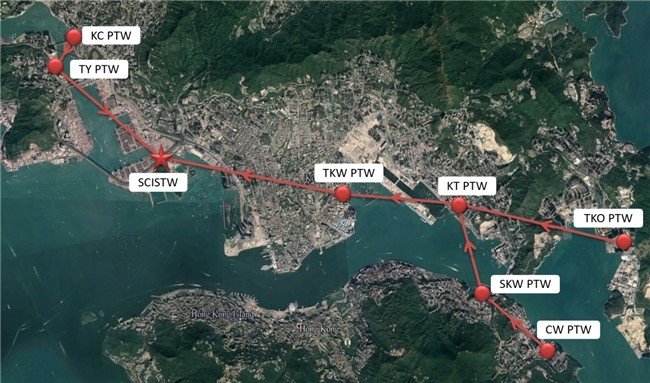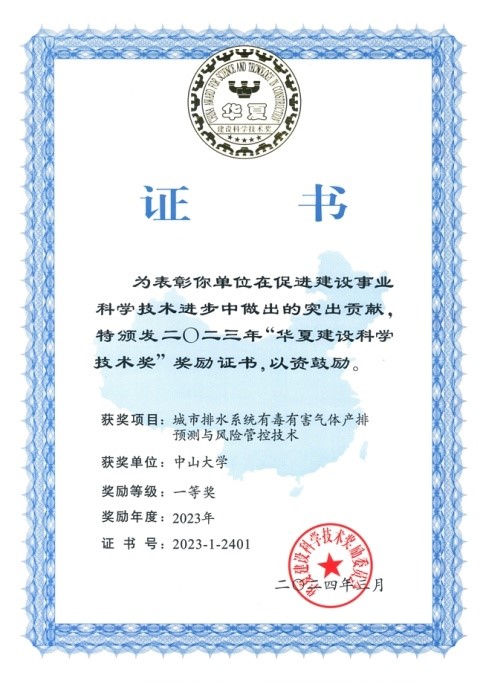Researchers develop technology to help with drainage system toxic gases


A team of researchers from Guangdong province and Hong Kong Special Administrative Region have jointly developed a new technology that could predict the generation and emission of toxic gases in urban drainage systems, and promptly manage the risks brought by them.
Over recent years, China has continued to advance urbanization and expand the scale of drainage systems. However, the amount of hydrogen sulfide generated in the drainage pipes has also grown rapidly, said Jiang Feng, leader of the research team and professor at School of Environmental Science and Engineering, Sun Yat-sen University.
Jiang said the toxic gases like hydrogen sulfide have not only caused severe pipe corrosion, but have also resulted in a large number of poisoning incidents and posed a threat to inspection and maintenance personnel.
Against such a backdrop, the Sun Yat-sen University, together with the Drainage Services Department of Hong Kong, the Hong Kong University of Science and Technology, and the South China Normal University, have developed an intelligent technology to cope with the issue.
Jiang said the research team has established a mathematical model to accurately predict the generation and emission of hydrogen sulfide, and constructed an online early warning system to promote risk control and management.

Currently, the technology is widely utilized in Guangdong and Hong Kong, notably reducing poisoning incidents and extending the life of drainage pipes. It has also successfully improved the sewerage system of the Harbor Area Treatment Scheme, the deepest of its kind in the world, said Jiang.
Besides, the research team has been honored with several major awards – including the 2023 China Award for Science and Technology in Construction – for remarkable technological achievement, Jiang added.
liuzizheng@chinadaily.com.cn




































